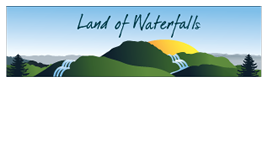 |
| Westall Vineyard in 1974 |
One mile east of Penrose, Thad Westall, retired Chief
Warrant Officer in the U.S. Army, owned and operated a vineyard from 1964 to the
late 1970s along with his wife Geri. Thad grew up in Flat Rock and bought a
couple of acres in Penrose for retirement in 1962. The first couple of years
were spent in renovating the house. Later he purchased an additional 27 acres
and began cultivating grapes. At the time, laws were still in place to limit
the production of alcohol other than for personal and home consumption, and so
Westall was sure to get federally licensed to make wine for his own use. What
grapes he couldn’t use for his own wine production were made available to the
public as a “pick your own” vineyard experience.
The way that Westall approached wine production was
similar to how hobbyist microbrewers might approach crafting beer today. He
often created small, distinct batches of wine in an experimental fashion,
learning from each attempt. He tended to keep each strain of grapes separate
and did not dabble in blending, as is common in commercial wine production,
though he did cross-breed grape varieties and create cultivars.
Westall devoted his time to developing the best kind
of wine grape for the region. One difficulty with grape production in the
western North Carolina mountains is the short growing season, so it was
important to grow a variety that could ripen in time before the cold season.
Although hobbyist gardeners have long cultivated Concord grapes successfully
for food consumption, the different varietals needed for wine production did
not easily flourish in this climate. It took research, trial, and error for
Westall to find the right variety of grapes for the region.
 |
| Thad Westall in the fermenting room 1974 |
He created his own cultivars, the “W 101” and “W102”
named for the W of Westall, tried out growing the “Fontaine,” and worked on
cross-breeding the “1918 G.B.” Each grape variety seems to have its own story.
Legend has it the 1918 G.B. was brought from Europe to the U.S. in 1918 by a
soldier in World War I and the “G.B.” stands for golf ball, in reference to the
grape’s large size. Fontaine was an heirloom variety from Transylvania County
created in the 1920s by a man with the last name Fontaine who cultivated grapes
on his property near where Brevard Middle School is located today and only quit
when prohibition made his wine production illegal.
As Westall experimented with grape production, he got
help from the Extension Services chair, Jim Davis, to learn more about farming
and growing grapes specifically. Westall also found a fellow grape-growing enthusiast
in local physician Dr. J.B. Scroggin. They exchanged information through the
years as they learned more and more about farming grapes for wine production.
Although now
long-gone with the road name “Vineyard Loop” as the only remnant, this early
wine production was ahead of its time in the Penrose community of Transylvania
County. Photographs
and information for this column are provided by the Rowell Bosse North Carolina
Room, Transylvania County Library. This article was written by Local History
Librarian Laura Sperry Gardner. For more information, comments, or suggestions,
contact NC Room staff at [email protected] or 828-884-1820.



